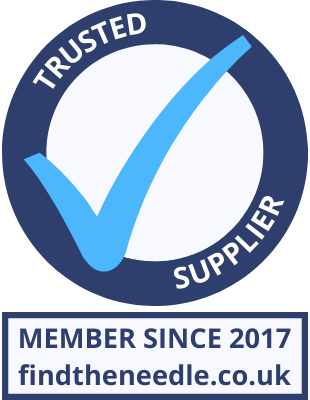 Add My Company
Add My Company
Sign In

It’s going to be a long time before we stop talking about before and after Covid-19. For anyone who has experienced this illness, directly or indirectly, it has been life-changing. For societies as a whole, the global coronavirus pandemic has brought about a change in attitudes and a re-evaluation as to what’s important. Life’s necessities, of course, come first. So, governments are going to have to think hard about how develop future resilience, especially in providing functioning public health services and robust economic structures. Easier for some countries than others.
Meanwhile, many people who are lucky enough not to face a daily struggle for necessities are re-evaluating priorities. The desire for the good things in life will remain, and there’s every indication that all things tech will remain popular. But what most people have remembered they really treasure is human interaction. Whether this is close friendships, casual acquaintances, work colleagues, or the random good deed of a stranger, we’re all going to value this more.
This will have commercial implications. Even before the pandemic there was a strong market for ‘experiences’: days out doing things we’d always dreamt of or had would never get round to organising ourselves. The choice was – and will be – enormous. ‘Red Letter Day’ gifts range from spa treatments to baking with a master chef to bungee jumping or freefall parachuting with your mother in law. And they’re not all expensive. A day out doing your favourite thing may well be the gift of choice as we revel in the relaxation of social distancing regulations.
And this raises an interesting question: if your company makes things for people to buy and give as gifts, what do you do when people want experiences not things?
Well, that’s obvious, I hear you say, just adapt. And I agree. If the modern world has taught us one thing, it’s that the basic human ability to adapt is worth it’s weight in gold – or perhaps its weight in personal protective equipment (PPE). The point is, you’ll need to adapt to grow and thrive. Here are three tips to make this easier.
Know your market
You probably think you know your market well already, and you almost certainly do, but how well? What have been the subtle changes over time? Can these be tracked in terms of sales or responses to marketing campaigns? Will the campaign that worked five years ago, work today? So have another look. In what ways has your market changed over time; over the last year, three years, five years? And crucially, why? You’ve almost certainly got data on this, but you’ll need to invest time in understanding it. If you don’t, or even if you do, consider market research to get a really up to date picture. This doesn’t have to be complex – it could be your own questionnaires and telephone calls to key partners – but if your markets are complex and multi-layered, it might be worth investing in professional market research.
Know your products
Another obvious thing, you’ll say. True. But how many once-great businesses (big and small) have failed because their products didn’t keep up with their markets? For a giant example, look at Kodak. For something more modest, look at any small town. Take a walk down Main Street and count the stores that were once thriving and are now shuttered up. We need to learn from this. If demand for your product is dropping off it might be for many reasons – but whatever it is, there is no point in sticking to your guns and insisting the product is great. It might be, but if fashions have already changed you could be in trouble.
So, take a look at your products. Informed but not governed by the past, match them to the current market and an intelligent picture of the future. And here we all face a health warning. As the world recovers from Covid-19, many businesses will pick up where they left off, but some will not. It’s going to be hard to predict where the shifts will be, but not everything that was secure before will be secure after. If a business was weak before the pandemic it may well face an existential crisis afterwards.
Historians will be familiar with the idea that many businesses are most vulnerable not during a recession, when they may just struggle though, but as they emerge from it. This is especially the case when we rely on just going to back to ‘as it was before.’ Making sure products are right has never been more important.
Be part of the experience
Or in other words – know where your product can take you, and where you can take your product).
As consumption patterns change it may no longer be enough to have a great product. You need to make sure the product targets the right market and adds value to the consumer experience. You need to be sure your products become the experience, or become part of an experience sold by someone else.
Clothing is a good example. People will always need clothes, but there may well be subtle changes in patterns of choice and use. At the luxury end, designers and brands do, to a certain extent, create their own market. But for many items it is going to be changing use that can make a difference. For example, most people in developed economies wear socks. For many this is purely utilitarian, but there is also a growth in specialist socks for particular purposes – running, tennis, walking, mountaineering, fashion, formal – so that careful targeting of the right audiences with the right products not only meets a demand but creates it too.
The same applies in other industries. If you manufacture industrial strength nylon webbing, have you investigated the leisure market? Have you explored selling into yachting, hang gliding or rock climbing? And if you make webbing for hang gliders, have you considered using your brand to add glamour to previously unglamorous uses in industry?
Whatever your product and whatever your route to market, one thing that we can be certain about is that the ‘new normal’ will not be like the ‘old normal.’ So, if you are waiting for your old customers to come back, make sure they know you’re still here – and then go out hunting for new customers and new markets too.
—
If you need a hand with picking sustainable products that will enhance your clients’ experiences, contact us via service@wearekingly.com
For more information on 3 ways to tap into the thirst for customer experiences talk to KINGLY LTD
Enquire Now
List your company on FindTheNeedle.

